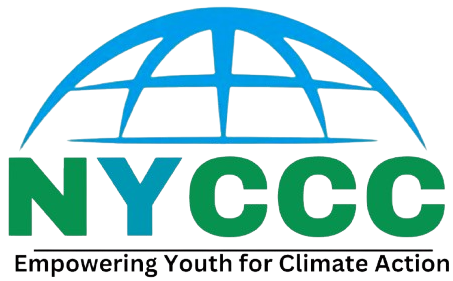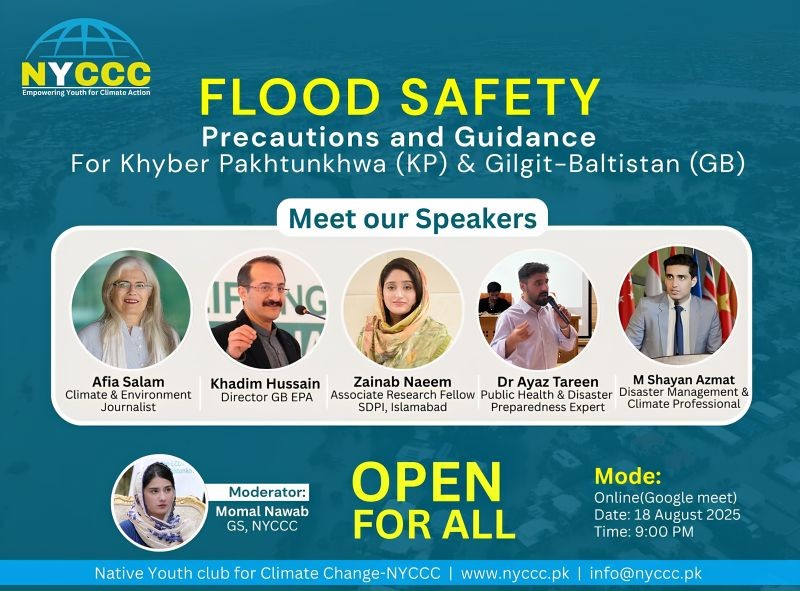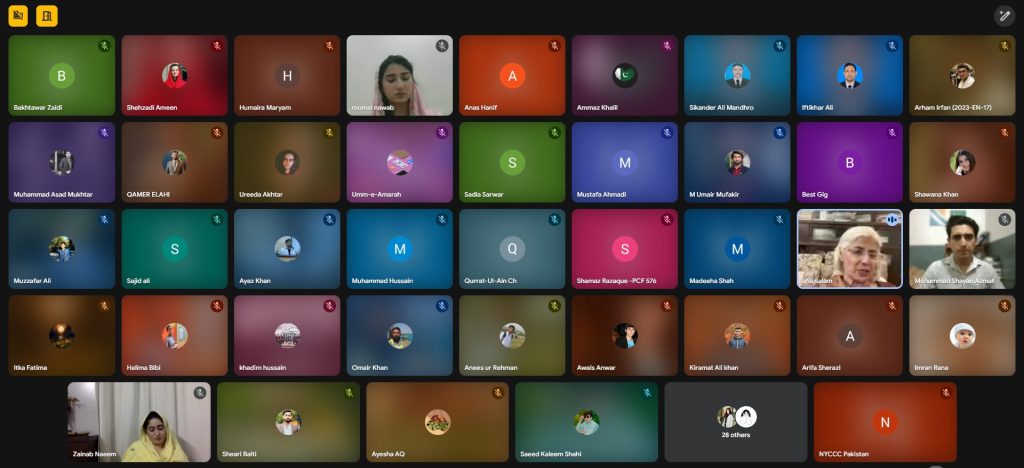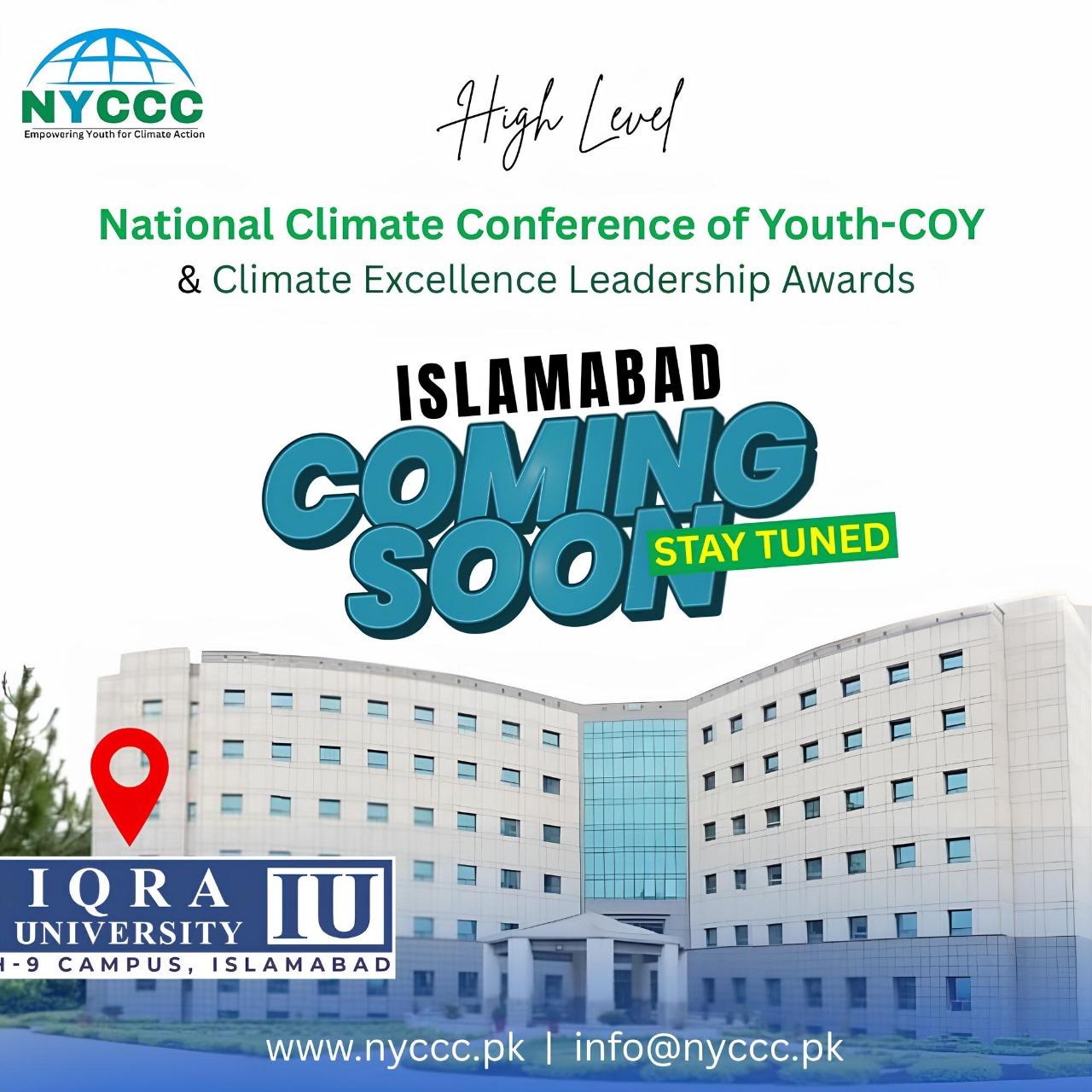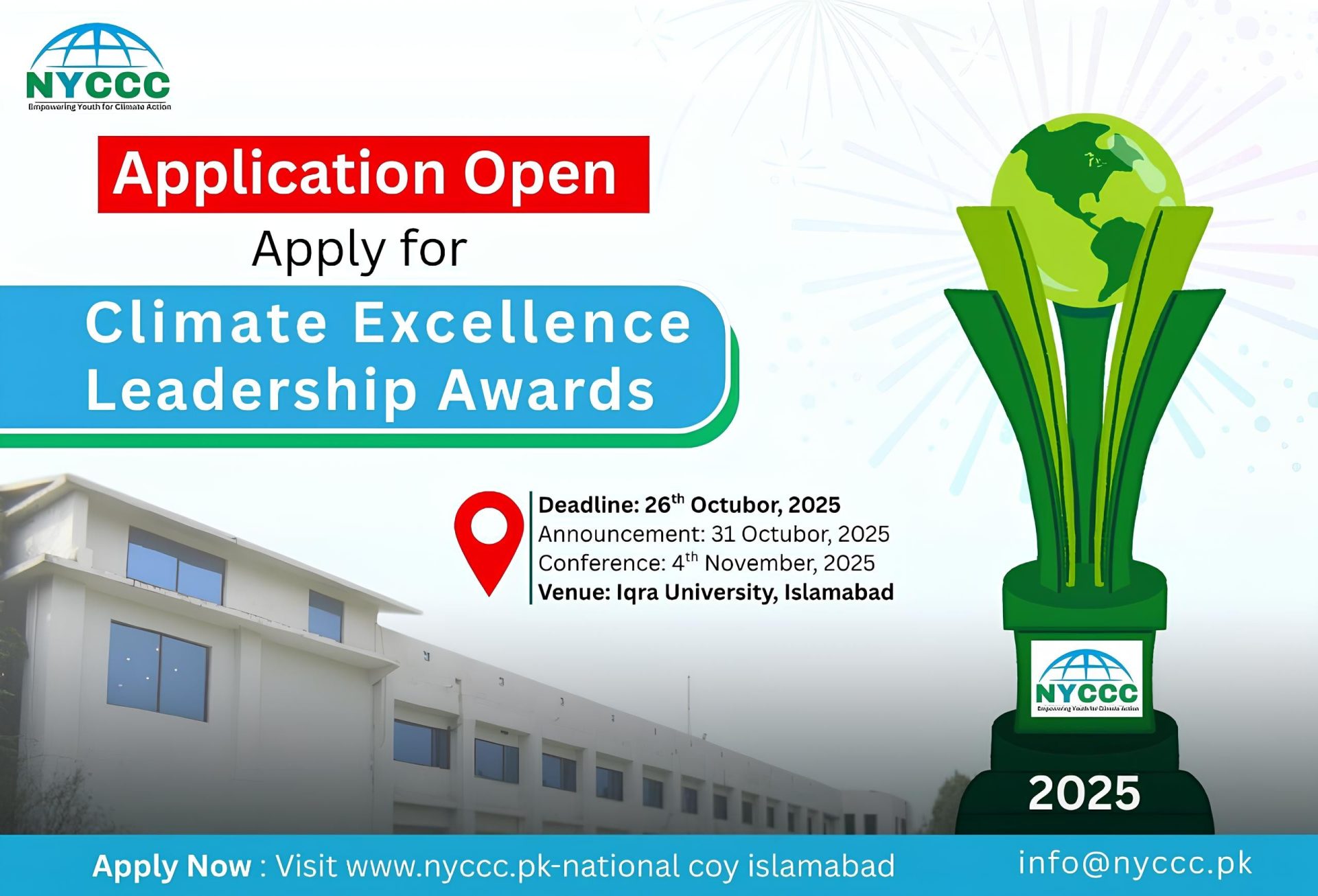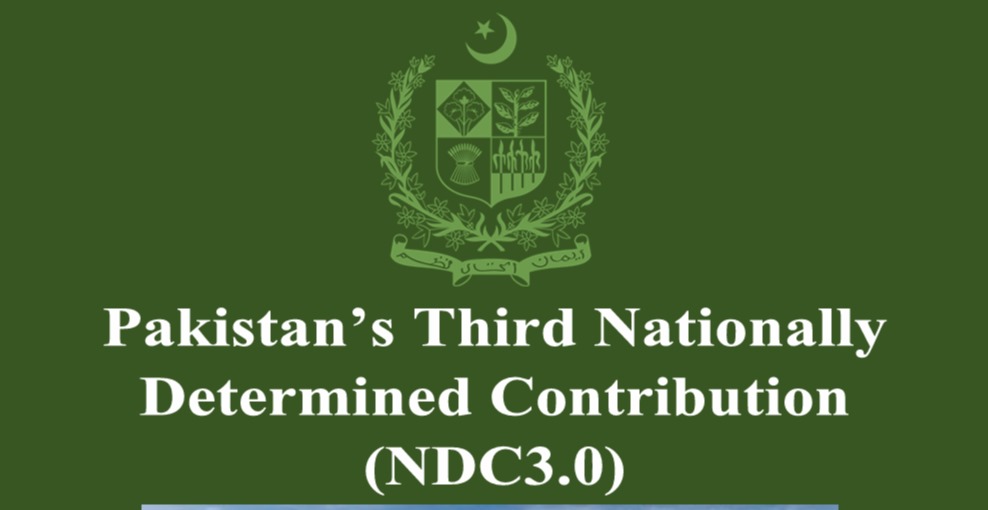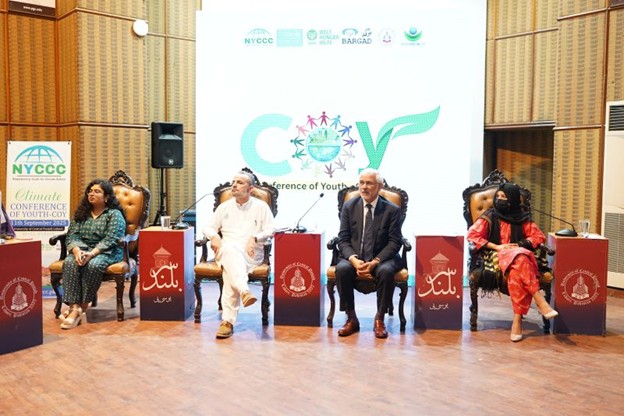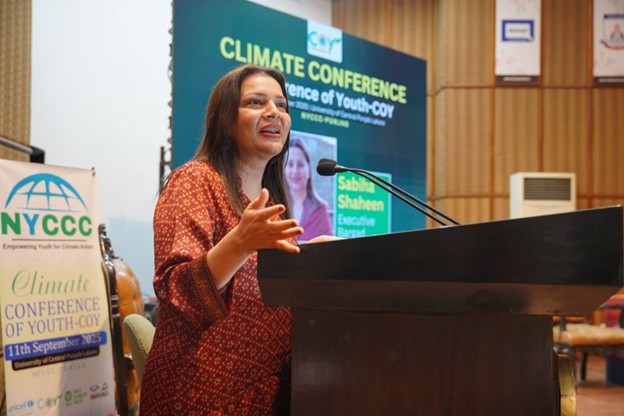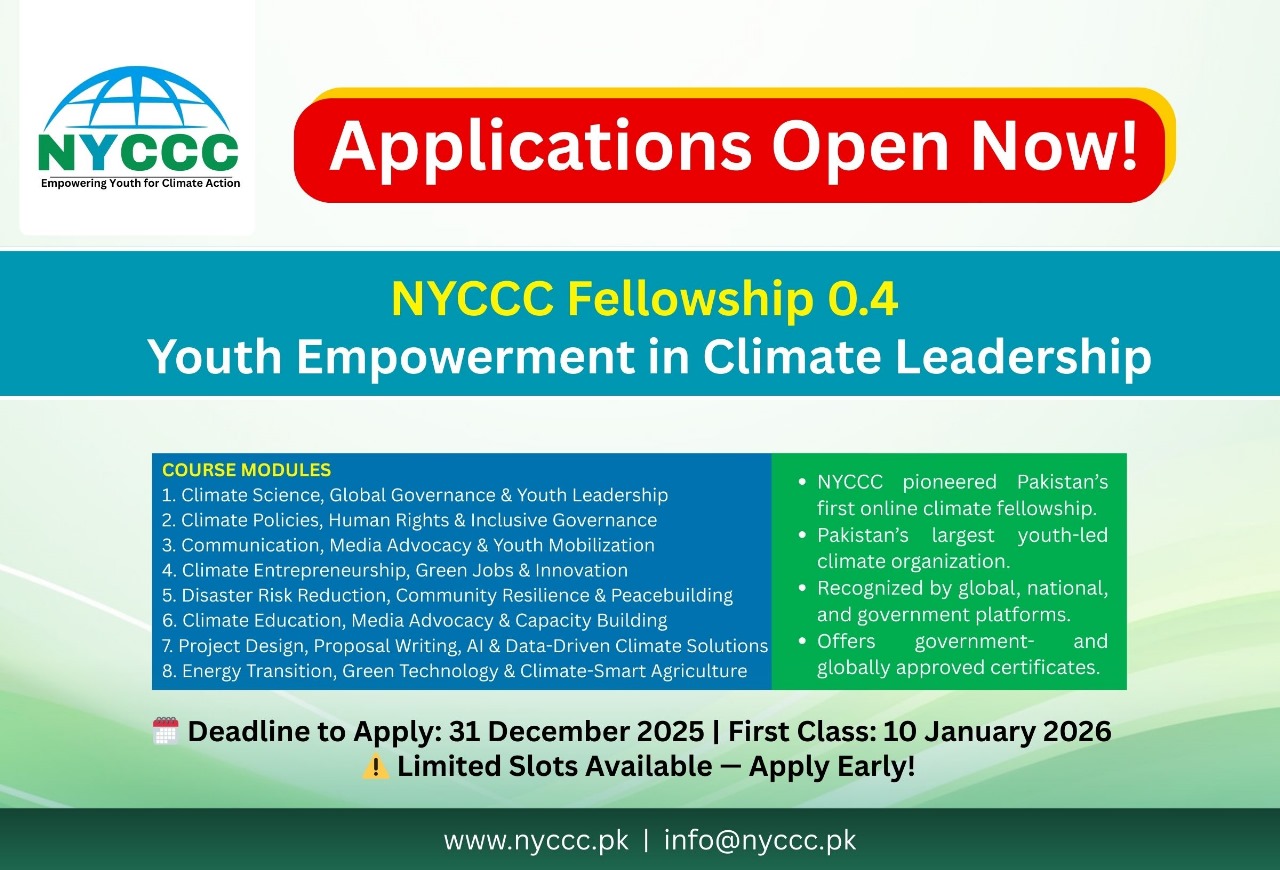Islamabad, August 2025 — As Pakistan continues to grapple with recurring floods worsened by climate change, the Native Youth Club for Climate Change (NYCCC) convened a Flood Awareness Webinar 2025, bringing together climate experts, policymakers, health professionals, and youth leaders to chart pathways toward resilience and preparedness.
The session emphasized the urgent need for youth-led action, evidence-based policy, and community-driven solutions to tackle the growing crisis.
Key Highlights from the Webinar
- Afia Salam (Senior Climate Journalist & Activist) set the tone with a call to action: “Youth are inheriting a world that is far from safe — but they are also the cohort that can reshape it.” She underscored the importance of advocacy, lobbying, and accountability to ensure policies translate into real change.
- Zainab Naeem (Associate Research Fellow, SDPI) drew attention to decades of policy and planning gaps, calling for evidence-based strategies, vulnerability mapping, and long-term climate responses, while urging youth to find purpose and raise their voices for climate justice.
- Muhammad Shayan Azmat (Youth Leader) shared inspiring accounts of youth-led resilience, from setting up WhatsApp-based early warning systems to mobilizing disaster relief. He stressed that young people are already first responders in times of crisis.
- Khadim Hussain (Director, Environmental Protection Agency, Gilgit-Baltistan) highlighted the role of indigenous knowledge, GIS-based modeling, and climate-resilient infrastructure, noting that Pakistan’s unique geography requires local, context-specific solutions.
- M. Umair Mufakir (CEO, NYCCC) showcased NYCCC’s own efforts in disaster response, emphasizing that youth mobilization networks can strengthen inclusivity and equitable relief distribution, while calling for more structured youth participation in resilience-building.
- Ayaz Khan (Health Professional, Balochistan) spotlighted the health dimensions of floods, warning of waterborne diseases, maternal and newborn health risks in displacement camps, and the psychological toll on children. He concluded that “climate crises are also health crises.”
Reflections and Way Forward
The webinar concluded that floods are multi-dimensional disasters, affecting not only infrastructure and livelihoods but also public health and mental well-being. The speakers collectively emphasized that youth engagement, scientific planning, and community-based strategies must be at the heart of Pakistan’s resilience roadmap.
